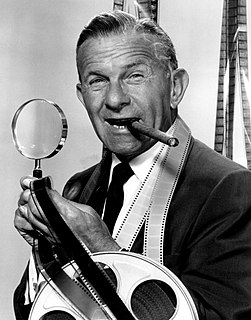A Quote by Graham Greene
A writer doesn't write for his readers, does he? Yet he has to take elementary precautions all the same, to make them comfortable.
Related Quotes
The ear is the only true writer and the only true reader. I know people who read without hearing the sentence sounds and they were the fastest readers. Eye readers we call them. They get the meaning by glances. But they are bad readers because they miss the best part of what a good writer puts into his work.
Over and over victims are blamed for their assaults. And when we imply that victims bring on their own fates - whether to make ourselves feel more efficacious or to make the world seem just - we prevent ourselves from taking the necessary precautions to protect ourselves. Why take precautions? We deny the trauma could easily have happened to us. And we also hurt the people already traumatized. Victims are often already full of self-doubt, and we make recovery harder by laying inspectors blame on them.
The analytical writer observes the reader as he is; accordingly, he makes his calculation, sets his machine to make the appropriate effect on him. The synthetic writer constructs and creates his own reader; he does not imagine him as resting and dead, but lively and advancing toward him. He makes that which he had invented gradually take shape before the reader's eyes, or he tempts him to do the inventing for himself. He does not want to make a particular effect on him, but rather enters into a solemn relationship of innermost symphilosophy or sympoetry.
The most difficult thing about living as a writer is precisely 'having to write.' Pretending to be a writer is easy. Living freely, reading many books, going on frequent trips, cultivating minor eccentricities... but genuinely being a writer is difficult, because you have to write something that will convince both yourself and readers.
The mathematics clearly called for a set of underlying elementary objects-at that time we needed three types of them-elementary objects that could be combined three at a time in different ways to make all the heavy particles we knew. ... I needed a name for them and called them quarks, after the taunting cry of the gulls, "Three quarks for Muster mark," from Finnegan's Wake by the Irish writer James Joyce.
[A writer] must try to think clearly, to feel deeply, to write honestly. If he is fortunate he will make a living, but his work will never be anymore essentially clear and deep and honest than he himself is, and he will be judged finally not for how many copies his books have sold, but for what they have done to enrich the lives of their readers, now and in time to come.
Of course I know that the twins are only words on a page, and I'm certainly not the sort of writer who talks to his characters or harbours any illusions about the creative process. But at the same time, I think it's juvenile and arrogant when literary writers compulsively remind their readers that the characters aren't real. People know that already. The challenge is to make an intelligent reader suspend disbelief, to seduce them into the reality of a narrative.






































